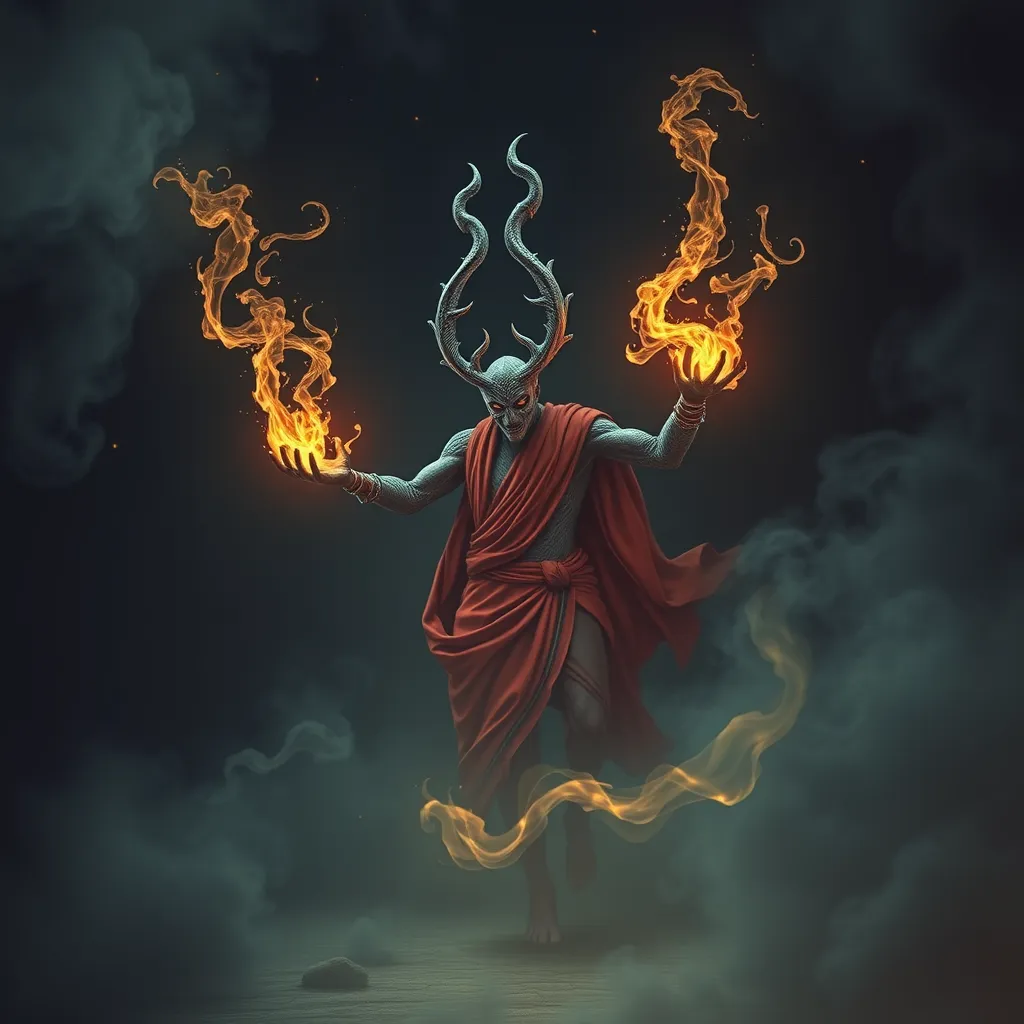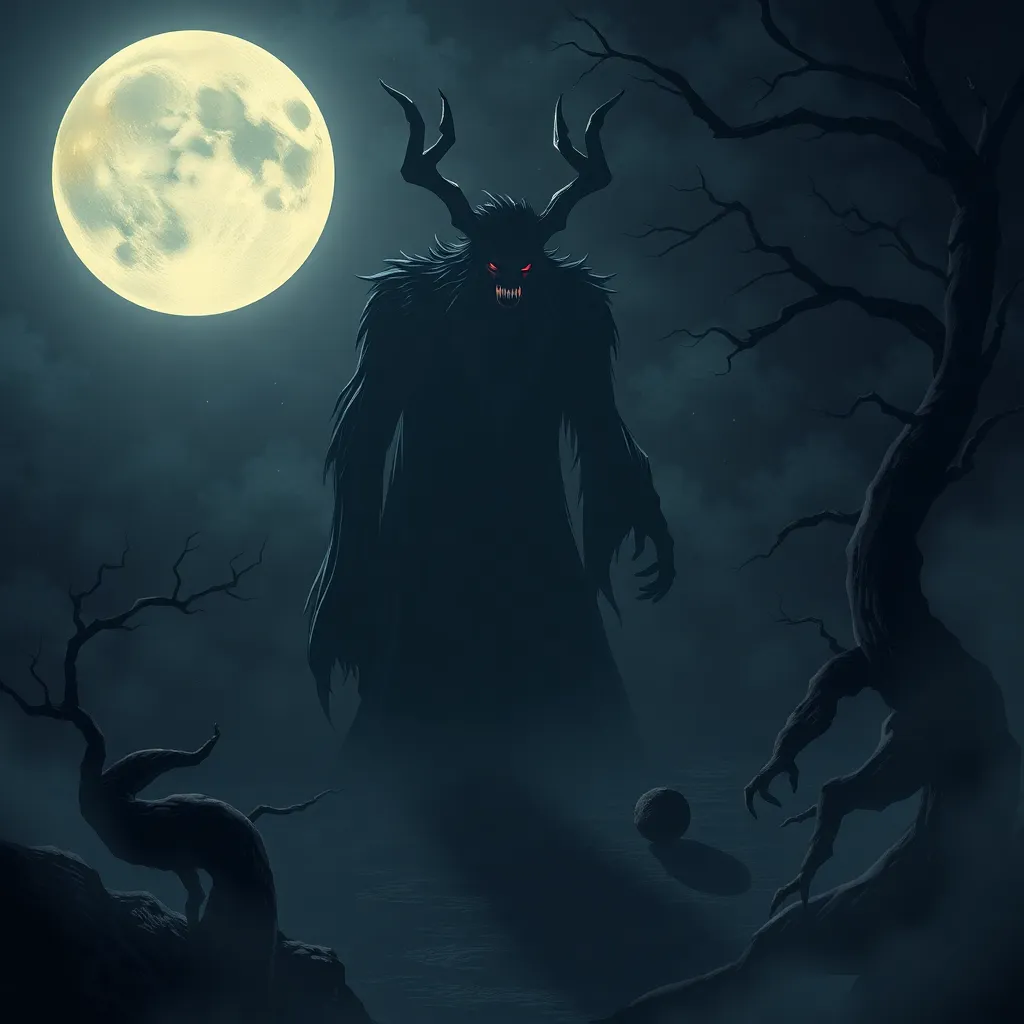Jinn and the Power of Fear: Exploring the Psychological Impact of Jinn Encounters
I. Introduction
Jinn, often referred to as spirits or supernatural beings, hold significant places in various cultural and religious contexts, particularly within Islamic theology and Arab folklore. Defined as entities created from smokeless fire, Jinn are believed to possess free will, akin to humans, which allows them to choose between good and evil. This duality adds complexity to their portrayal, leading to a spectrum of beliefs about their nature and intentions.
Fear is a predominant emotion associated with encounters involving Jinn. Many individuals who claim to have experienced a Jinn encounter report feelings of dread, anxiety, and terror. These experiences can be so profound that they leave lasting psychological impacts. The purpose of this article is to delve into these psychological effects, examining how fear stemming from Jinn experiences influences mental health and societal perceptions.
II. Historical and Cultural Significance of Jinn
The origins of Jinn can be traced back to pre-Islamic Arab folklore, where they were considered to inhabit desolate places and were often associated with mischief or malevolence. In Islamic theology, Jinn are mentioned in the Quran, emphasizing their creation by Allah and their ability to choose their paths, presenting them as beings that can either guide or mislead humans.
Beliefs about Jinn vary widely across cultures. For example:
- In South Asian cultures, Jinn are often linked to local spirits and can be appeased through rituals.
- In North African cultures, Jinn are associated with illness and misfortune, leading to various protective practices.
- Western interpretations sometimes depict Jinn as genies, focusing more on their magical abilities and less on the associated fears.
The role of Jinn in shaping societal norms and fears is significant. They serve as cautionary figures, instilling a sense of respect and fear for the unknown, thereby influencing behaviors and community practices.
III. The Nature of Fear in Jinn Encounters
Psychological theories of fear and anxiety often explore how individuals respond to perceived threats. When it comes to Jinn encounters, common fear responses can include:
- Paranoia or hyper-vigilance
- Physical symptoms such as sweating or trembling
- Sleep disturbances, including nightmares
Superstitions and belief systems play a crucial role in amplifying fear related to Jinn. Cultural narratives can shape individual perceptions, making encounters feel more threatening. For instance, the belief that certain actions or locations attract Jinn can lead to increased anxiety around everyday activities.
IV. Case Studies: Personal Accounts of Jinn Encounters
Numerous individuals share narratives of their encounters with Jinn, often detailing experiences that evoke strong emotional and psychological responses. Common themes in these accounts include:
- Descriptive feelings of being watched or followed.
- Unexplained noises or movements in their environment.
- Sudden changes in mood or health following an encounter.
Analysis of these narratives reveals how such experiences can profoundly impact an individual’s mental health. Many report lingering anxiety, distrust of their surroundings, and a shift in worldview that leads to increased reliance on spiritual or religious practices for protection.
V. The Intersection of Jinn Beliefs and Mental Health
In cultures with strong beliefs about Jinn, mental health issues may be stigmatized. Symptoms of psychological disorders can be misattributed to Jinn influences, complicating diagnosis and treatment. This stigma can prevent individuals from seeking help, as they may fear being labeled as having a “weakness” or being possessed.
There is a notable correlation between reported Jinn encounters and psychological disorders, including:
- Generalized anxiety disorder
- Post-traumatic stress disorder (PTSD)
- Paranoia and other delusions
Addressing fear and anxiety related to Jinn requires cultural sensitivity. Therapists and mental health professionals may need to incorporate discussions about Jinn beliefs into their practices to better support affected individuals.
VI. Coping Mechanisms and Cultural Responses
Traditional practices for warding off Jinn vary widely, including:
- Reciting specific prayers or verses from religious texts.
- Performing rituals to cleanse spaces believed to be haunted.
- Wearing amulets or talismans for protection.
Community support can play a vital role in processing fear associated with Jinn. Sharing experiences within a trusted community can alleviate feelings of isolation and encourage collective coping strategies.
Modern approaches to coping with the fear of Jinn might include:
- Psychotherapy focused on anxiety management.
- Mindfulness and relaxation techniques.
- Education about the psychological aspects of fear and superstition.
VII. The Role of Media and Literature in Shaping Jinn Perceptions
The representation of Jinn in popular culture and media has significantly influenced public perception. Films, books, and television often portray Jinn as both terrifying and fascinating, contributing to the duality of fear and allure. This portrayal can shape societal beliefs and impact individual experiences.
Storytelling has a profound influence on fear and belief, as narratives surrounding Jinn can either reinforce or challenge existing fears. The duality of Jinn as both malevolent and benevolent figures complicates their representation, leading to a rich tapestry of cultural interpretations.
VIII. Conclusion
In summary, encounters with Jinn can have complex psychological impacts, deeply intertwined with cultural beliefs and fears. Understanding the nature of fear in these contexts is crucial for addressing mental health concerns and fostering awareness. Balancing belief systems with mental health awareness is essential in helping individuals navigate their experiences, allowing for both cultural respect and psychological support.



